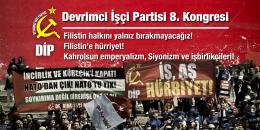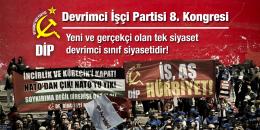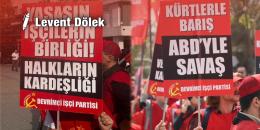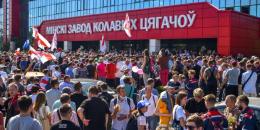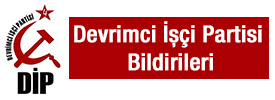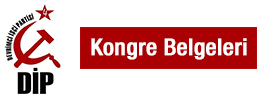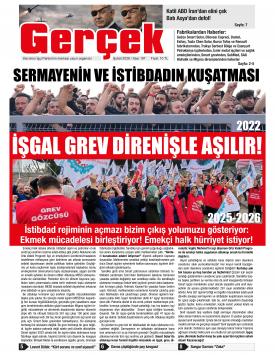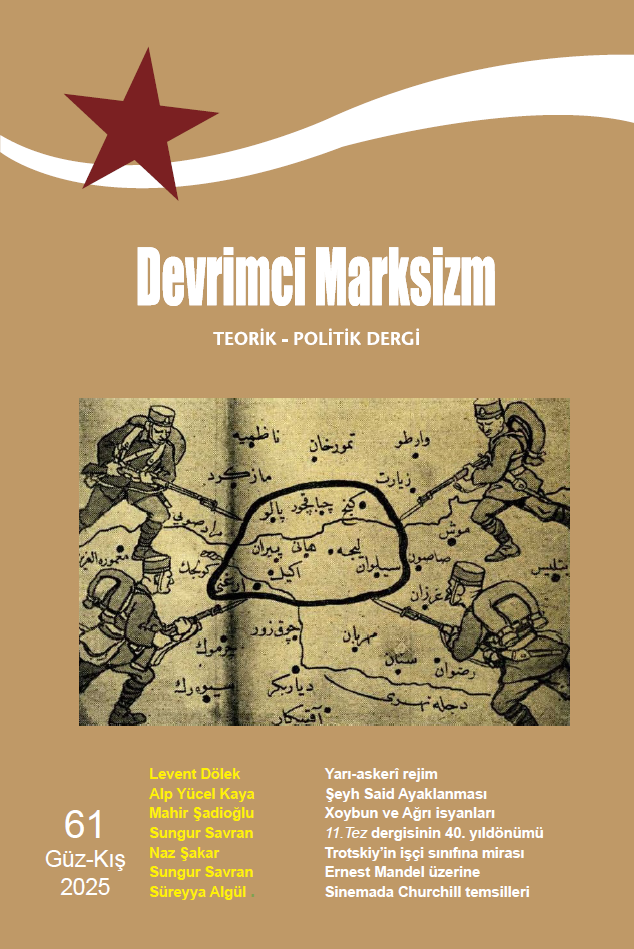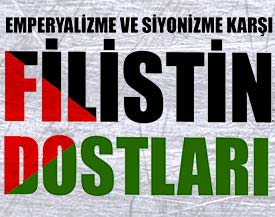International Socialist Center ‘”Christian Rakovsky”: Belarus in turmoil
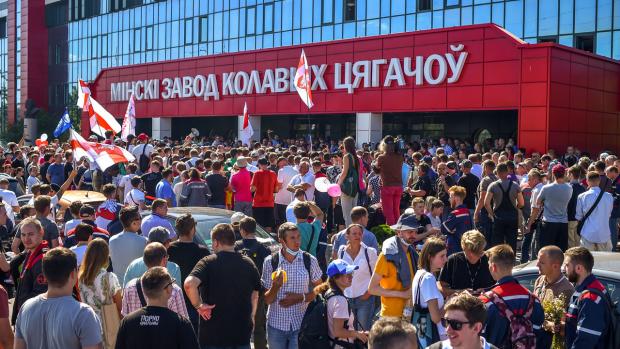
For an independent socialist solution of an international crisis
1. The mass popular upheaval in Belarus, manifested in successive waves of protest demonstrations and workers strikes against the Lukashenko bureaucratic regime and its police brutality, initiates the most explosive crisis in the former Soviet space following the Ukrainian events of 2014. In its specificity it is, in every sense, not solely a huge national or regional but an international crisis, with vast international ramifications and global social, political and geopolitical implications.
2. The crisis erupted after 9 August 2020, when the elections gave to President Alexander Lukashenko, who has ruled the country since 1994, an incredible 80 per cent of the vote. The results were considered by broad layers of people as a scandalous fraud; the product of manipulation by the State apparatus, controlled by Lukashenko’s capitalist bureaucracy and under conditions of repression of the opposition. The popular protests in the streets that followed were repressed by a police brutality unseen in recent Belarusian history – a fact that triggered much more mass protest demonstrations, later to be joined by strike actions by workers in the State factories, who until recently had supported the Lukashenko regime because of its social protective policies.
Immediately, it became clear that there was an erosion of the ties between the industrial proletariat of Belarus with a paternalistic bureaucratic capitalist regime, where vast sectors of the economy remained under State control, permitting until recently concessions to workers which were no more possible to keep.
To find a way out from an isolated economy that was plunging into a protracted stagnation, the Lukashenko regime made more openings to the EU, as well as to the local sectors of market economy by introducing anti-working class measures. It established a so-called “unemployment tax”, both revealing the officially hidden but growing unemployment and making concessions to the private sector. The new system of employment contracts deprive workers of many rights. The most unpopular measure was taken against pensions by raising the age of retirement.
Political strikes in a post-Soviet CIS country is something completely new. Obviously they came as a shock to all the rulers in the region, having a big impact among workers in all former Soviet Republics, foremost in Russia itself.
As the Lukashenko paternalist-bureaucratic regime was losing legitimacy in the eyes of the people, particularly among the industrial proletariat, the electoral fraud in August 2020 followed by police brutality against the protests, ignited mass upheaval shaking the Bonapartist rule and generating a profound regime crisis – a crisis of political power.
3. The EU, NATO, and US imperialists saw it as a great opportunity to manipulate and control the popular grievances for a “pro-Western” (i.e a pro-imperialist right wing “regime change”) serving their plans of domination all over Eastern Europe, the Balkans and the former Soviet space right up to the Caucasus, targeting above all Russia.
The EU August Summit gave absolute priority to the Belarus crisis by actively, openly, and immediately intervening in it, overshadowing another extremely dangerous crisis in its Southern Eastern flank: in the Eastern Mediterranean. Imperialist antagonisms and the reactionary clash between two NATO members, Greece and Turkey, had raised the threat of an international catastrophic war conflagration engulfing the entire area. But the August EU Summit postponed taking any measures on this dangerous crisis until its next meeting in September, while Belarus occupied the center of the stage.
The entire EU capitalist integration project is threatened by the “perfect storm” of the insoluble global, systemic capitalist crisis and the devastating impact of the coronavirus pandemic. The Belarus upheaval came as a “golden” opportunity that may yet prove to be illusory. It revived and gave impetus to the European imperialist “drive to the East”, with the central target being Russia itself, as a way out for the EU from its own impasse.
Meanwhile, the Russian President Vladimir Putin reasserted the traditional close ties and strategic alliance between Moscow and Minsk, promising military-political support to Lukashenko. At the same time, secret negotiations are taking place between Putin and Merkel, acting as the representative of German hegemony in the EU and its most powerful leader.
The Alexei Navalny poisoning case and his treatment in Germany serves as a kind of reloaded Cold War weapon, which has as its main aim the influencing of Western public opinion.
Lukashenko, for his part, now makes the promise to introduce a new Constitution. This has all the appearance of nothing more than a possible concession, designed mainly to appease the masses and above all to win time. The main questions therefore remain: who and what social-political forces, by what procedure, and in whose social interests will this new Constitution be aimed at?
No illusions for the lasting effect of such negotiations or concessions have to be nurtured.
The real aggressive needs of imperialism combined with local-regional capitalist forces are expressed clearly by a well-known mouthpiece of imperialism and of the oligarchs: Arsenyi Yatseniuk, former prime minister of Ukraine and now Chairman of
Kyiv Security Forum. Yatseniuk asked that the EU and NATO “drop the illusion of any kind of settlement with Russia and instead to extend NATO membership eastwards”. “In practice this means giving Belarus, Georgia, Moldova and Ukraine the clear signals that EU and NATO membership is achievable and, if a clear action plan to membership is followed, that it is realistic” (Financial Times, August 30, 2020).
What is advanced is an asphyxiating military encirclement of Russia. By means of a Belarus colonized by the EU and militarized by NATO, imperialist forces would be the short distance of just a few dozen kilometers from the capital of Russia, Moscow, itself!
4. The EU decided to take sanctions against the Lukashenko regime, supporting, promoting and financing openly the neoliberal pro-imperialist opposition leaders, demanding not only new elections but the dismantling of the State sector of the economy by a vast programme of privatizations, leading to a “Bulgarization” of the country spreading unprecedented misery to the impoverished masses.
It hopes for a Maidan-bis. It is far from being probable.
However, this does not mean that there is no enormous political confusion among the workers and popular masses of Belarus. Strike committees and protest movements have not acquired any organized political-ideological center, with its own programme and strategy, independent from the so-called “Coordinating Committee” of the neoliberal, pro-imperialist opposition leaders. Marxist and left forces are extremely weak in every sense.
Any defense or apologetic stand towards the exhausted Lukashenko bureaucratic capitalist regime, its policies and police brutality against the people as well as its hopeless maneuvers between Putin’s Russia and the imperialist EU, would be nothing short of criminal.
It would also be totally irresponsible to underestimate the grave dangers from an imperialist sponsored “regime change” or to blindly fetishize the spontaneous workers and popular anti-Lukashenko movement, as European social democracy and many trends of the “radical left” internationally do.
The international working class movement, especially the revolutionary Marxist communist vanguard, has the duty to intervene urgently in this ongoing international conflict centered now in Belarus, as an independent “third factor”, fighting for an independent international socialist outcome of the confrontation.
5. The disintegration of the Soviet Union and the capitalist restoration process followed an uneven and combined development in its different segments in Russia, Ukraine, Caucasus, Central Asia and now Belarus.
Belarus under Alexander Lukashenko appeared as a paradoxical relic of the old Soviet economy, under a bureaucratically centralized State control, with a heavy industry very tied to and nearly integrated and subsided by the Russian economy, particularly in energy, military and high-tech sectors. On this basis, the living standards of the Belorussian workers and people were preserved for a long period, thus avoiding the horrors, famines and disasters of other former Soviet Republics, including Russia (particularly under Yeltsin).
Any illusion is misplaced if one views Belarus as a remnant of the old Soviet regime keeping its path and somehow bypassing the fate of the USSR after the historical disaster of 1991. Under the personal-paternalistic rule of Lukashenko, the bureaucratic regime had as a goal a gradual, strictly controlled, capitalist restoration process, not Socialism, not even “socialism in a single country” as in the past; a transition back to capitalism, avoiding the sufferings and upheavals of the other segments of the former USSR.
But this State-managed regressive transition, subsidized by Russia for economic and geopolitical reasons, finally reached its historical limits. The Bonapartist State plunged in crisis, confronting popular masses in an uprising, from the one side, and escalating EU and NATO imperialist threats of aggression, from the other.
6. Capitalist restoration does not take place in a vacuum, outside History, but within a historically determined world environment.
By the implosion of finance capital globalization in 2008 and the “perfect storm” of 2020, the “cunning of History” has completely demolished all the reactionary bourgeois triumphalist fallacies of the 1990s about “the end of history” and the “final and complete victory of liberal capitalism”.
The same historic driving forces put an end to any relative economic, political, social “stabilization” or expansion in the various restoration regimes in the countries of the defunct “actually existing Socialism”.
The destabilizing problems of a stagnating Russian economy had an immediate backlash effect on the interlinked Belarusian economy, which had already reached the limits of its illusory “autarky”, under the impact of the worsening international economic situation. The Lukashenko regime started to attempt to take some distances from Moscow, negotiating with the EU and taking steps towards market economic “reforms”. Finally, the elections of August 9, 2020 and the popular anger against the fraudulent results was the last straw, triggering the current political explosion: Lukashenko could not any more rule as in the past 24 years, and the masses could not tolerate anymore to be ruled as before.
7. EU and NATO imperialism actively intervened in the divide between the people and the weakened ruling Bonapartism, to give to the opposition movement an openly neoliberal capitalist orientation for limitless privatizations and a pro-imperialist “regime change”.
The dismantlement of the state controlled economy, under the present conditions of global capitalist crisis, will not lead to any economic boom raising the living standards, but on the contrary to social catastrophe and misery. As a matter of fact, such “program” and “change” would mean the reduction of Belarus to a colonial status and to an advanced NATO war post at the doors of Russia.
The imperialist demagogy about “ending the last dictatorship in Europe” is a conscious deception. Let us ask a simple question: Why is Orban’s far right “illiberal democracy” in Hungary more acceptable to the EU than Lukashenko’s? Is it because the Hungarian “illiberal” ruler, considered in Europe perhaps as a bastard, “is their bastard”?
Re-integration with global capitalism in our historical epoch nothing less than re-colonization, fragmentation and dictatorial rule by authoritarian regimes of comprador elites dependent on imperialism.
In the aftermath of the dissolution of the Soviet Union, even under the chaotic conditions of IMF “shock therapy” under Boris Yeltsin, the leading American-Polish strategist of US imperialism, Zbigniew Brzezinski, the architect of the anti-Soviet Afghanistan war, insisted in his “Great Chessboard” grand strategy scheme that the disintegration of the USSR was not enough to secure US imperialist needs and hegemonic interests in a new world order; it was absolutely necessary to create the conditions for the fragmentation of the Russian Federation itself and the Balkanization of the entire former Soviet space.
EU and NATO intervention in Belarus is the latest episode in this drive. It is a global problem not only a national one. A threatening war catastrophe involves, beyond Belarus, the survival of all humanity.
8. To global problems, global solutions are needed. What social class forces and political organizations, based on what class interests, can provide an international solution, stopping the slide to barbarism and war and opening a horizon of universal human emancipation and world Socialism?
In our Marxist view, it is the international working class, organized on an international scale, acting as a universal class at the head of all impoverished, oppressed, discriminated popular masses and minorities to finish with every form of exploitation, oppression and humiliation of human beings by human beings.
“Geopolitical” events and risks cannot be separated mechanically from their material social economic bases. It is not only a crime but also a fatal error, to use Talleyrand’s words, to repeat, as Russian nationalists do again with the Belarus crisis, that “Russia’s only allies are its army, navy, and air force, including its missiles”. Leaving apart all militaristic fantasies and the nightmare of a nuclear holocaust, let us remind ourselves that in the imperialist epoch Russia, defending the interests of the upper classes on a backward capitalist basis, was defeated both in the Russo-Japanese war as well as in the First World War. It was only on the basis of the 1917 October Socialist Revolution and its defense that the Red Army of Workers and Peasants defeated the invading 14 foreign armies of imperialism and the local “white” counter-revolution; and in the Great anti-fascist War it was the Soviet Army of the Land of October that smashed the Nazi war machine and saved humanity from the horror.
In both cases, the real allies of the peoples of Soviet Russia and later of the USSR were not any foreign or local capitalists and oligarchs but the international proletariat and oppressed peoples rising in arms and sacrificing their lives for their liberation from barbarism.
Today too, the only real allies of the people in Russia, in Belarus and all the former Soviet space are their exploited, oppressed and rebelling brothers and sisters, the workers and poor in Europe, the Middle East or Latin America, suffering from the same global crisis, and rebelling in struggle for a real human future. To achieve this future the only solution is a renewed, creative, anti-bureaucratic, world Socialism.
9. The International Socialist Center “Christian Rakovsky” calls all the workers and oppressed in Europe, in the United States in popular rebellion, the Middle East and internationally to manifest in action their solidarity with the people of Belarus, against State repression and police brutality, against both the Bonapartist bureaucratic regime as well as against the pro-EU, neoliberal leadership of the opposition, defeating the imperialist EU/NATO intervention.
Strike workers’ committees and other popular forms of self-organization from below have to organize themselves and coordinate their action, independently from the pro-imperialist “Co-ordination”, forming genuine workers Councils (Soviets). Only a freely elected National Congress of these Councils could draft a new Constitution defending the interests of the working class and popular masses on a socialist basis.
Forward to an independent Soviet Socialist Republic of Belarus, without bureaucratic satraps or oligarchs, as a part of a Soviet Renaissance reversing the 1991 disaster, and as a step towards a socialist unification of all the European Continent!
September 3, 2020
Signatories:
International Socialist Center “|Christian Rakovsky”
ΕΕΚ (Greece)
DIP (Turkey)
MTL (Marxist Workers League, Finland)
ΡΠК (Russian Party of Communists - Russian Federation)
ASU (Association “Soviet Union”- Russian Federation and other former Soviet Republics)
ROR (Renaissance Ouvrière Révolutionnaire- France)
Sardegna Rossa (Sardinia- Italy)
Tamás Krausz (in personal capacity, Eszmélet, Hungary)

